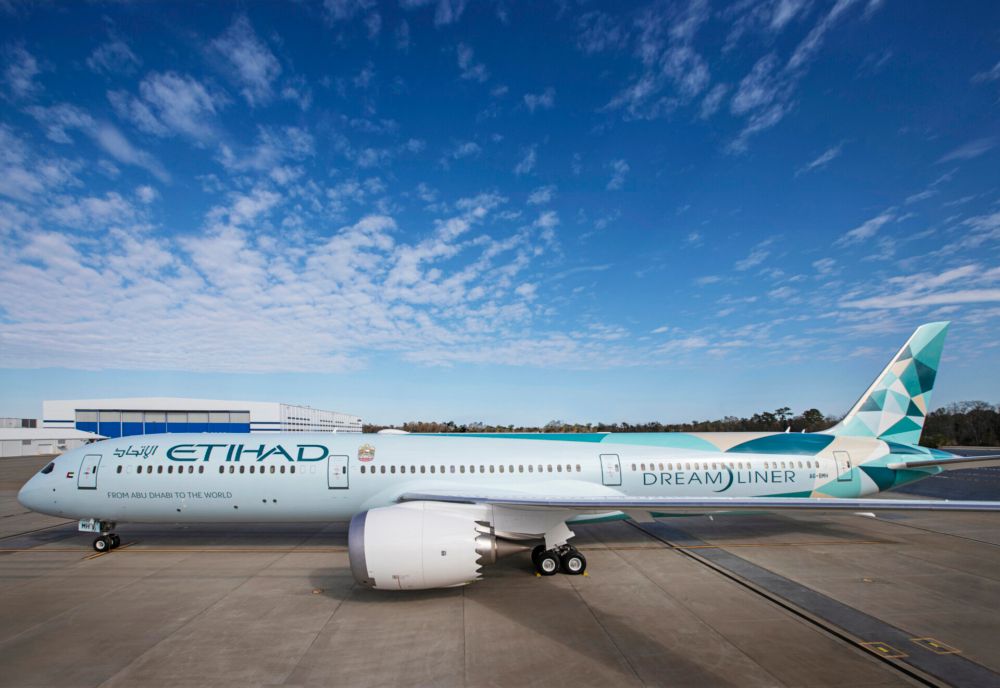On Wednesday, Etihad presented the latest initiative within its broader sustainability framework. With the launch of its Corporate Conscious Choices program, the airline hopes to incentivize partners to lead by example through bulk purchasing sustainable aviation fuel and contributing to accredited carbon offsetting programs.
At the beginning of December last year, Etihad introduced its Conscious Choices frequent flyer scheme. This provides members of the airline's loyalty program with the opportunity to be rewarded with miles for making environmentally conscious choices in their everyday lives - what car they drive, how much luggage they bring on board, what they cook for dinner, etc. Customers can then use these miles to finance responsible carbon offsetting projects across the globe and earn tier miles.
Responsibility to leverage influence
Anything that supports awareness of how our individual choices affect the planet is always welcome, as is funneling funds towards environmentally and socially responsible projects. However, we need action on a much larger scale more than ever. Etihad is now enlisting its corporate clients for the latest development of its sustainability project - Corporate Conscious Choices.
"As corporates and large organizations, we all have a responsibility to our customers, and to society as a whole, to leverage your influence, to lobby change, and to lead by example. And of course, to facilitate consumer action," said Martin Drew, senior vice president for sales and cargo at Etihad, during a live presentation of the program on Wednesday.
Stay informed: Sign up for our daily and weekly aviation news digests.
Four main pillars of the program
Through the new program, Etihad's corporate clients will be able to help further their own sustainability targets in four different ways. Firstly, they can buy sustainable aviation fuel (SAF) to power their business travel in bulk directly from Etihad. This will be fully accredited and can be used to offset against Scope 3 emissions requirements.
Secondly, corporates can opt to have 'green surcharges' added to their tickets. Etihad will then invest these in offsetting solutions such as SAF, mangrove planting, or reforestation and community projects.
Thirdly, when business travelers earn Guest Miles, their companies will also earn Corporate Conscious Points. And lastly, these points can then be used to offset corporate travel, everyday activities, or purchase sustainable products from the Etihad Guest Reward Shop. The vast majority of offsetting programs are fully accredited, the airline says.
Major partners as business travel bounces back
During Wednesday's presentation, Etihad said it expects business travel to bounce back to about 60% to 65% of 2019 levels later this year. One of the launch partners for the program is the globally leading travel management firm CWT. It is joined by IT services and consulting company Accenture.
"Seeking more environmentally responsible travel solutions is a continuing focus, and our initial offsetting partnership with Etihad is the latest in our range of such groundbreaking initiatives,” Patrick Andersen, chief commercial officer at CWT, said in a statement.
Meanwhile, Etihad CEO Tony Douglas shared the following,
“We have put a lot of focus on what governments and regulators should be doing to battle climate change, but the fact is we need corporates’ help and there is an equal responsibility for corporates to do what they can to reduce their own carbon footprint, while leading by example to help consumers to live more sustainably," Tony Douglas, Etihad CEO, said in a statement.
Would you like the company you work for to engage in sustainable travel schemes? Do you believe this is a solution for more conscious business travel, or should we preferably maintain time-zone adjusted video conference calls as much as possible?



